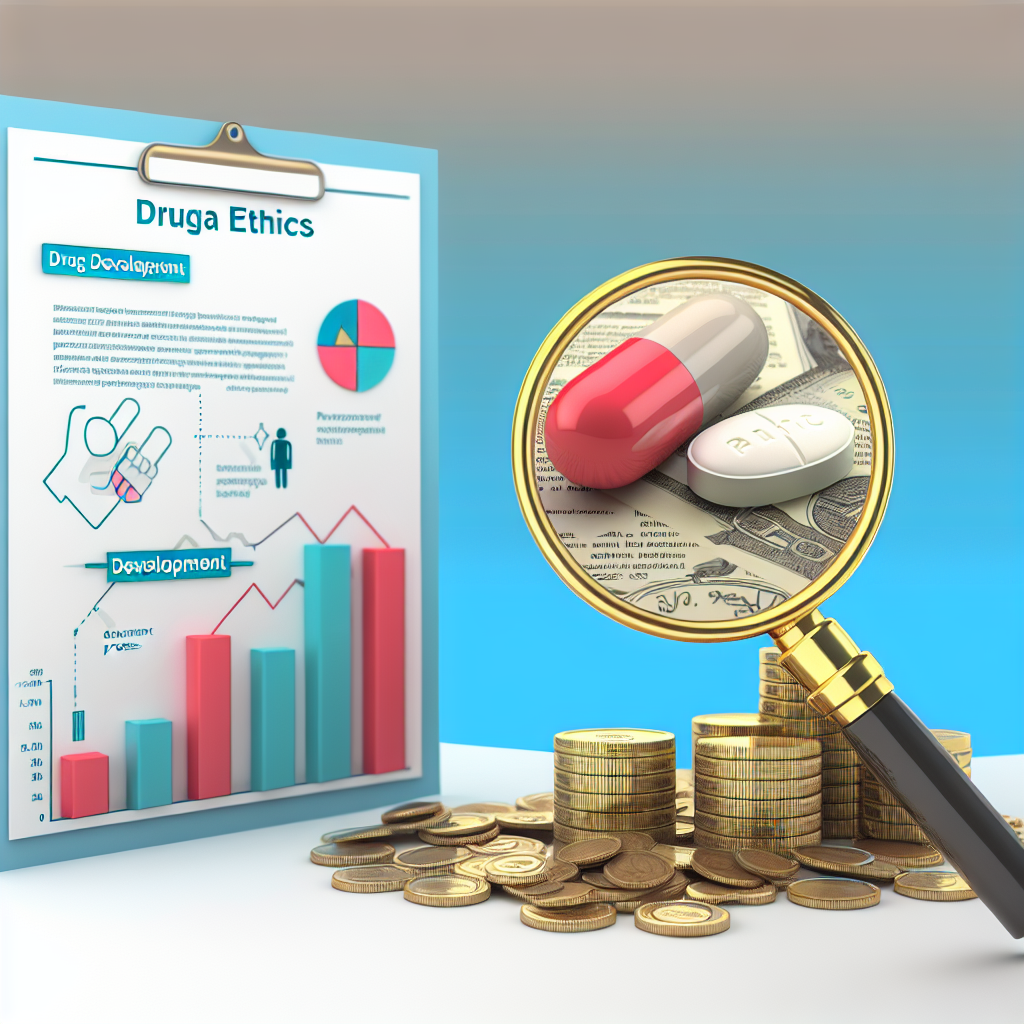
Pharmaceutical Ethics: Drug Development and Pricing
Introduction to Pharmaceutical Ethics
The pharmaceutical industry plays a crucial role in global healthcare, driving innovation through drug development that aims to address various health challenges. However, the path from research to market is fraught with ethical dilemmas, particularly concerning drug pricing and access. This article explores the ethical considerations surrounding drug development and pricing, emphasizing the importance of compliance standards and ethical practices in this sector.
Understanding Drug Development
Drug development is a complex process that typically involves several stages, including:
- Discovery and Development: Initial research and experiments to discover new compounds.
- Preclinical Testing: Laboratory and animal testing to assess safety and efficacy.
- Clinical Trials: Human testing in multiple phases to gather comprehensive safety and effectiveness data.
- Regulatory Review: Submission of data to regulatory bodies for approval.
- Post-Market Surveillance: Ongoing monitoring for long-term safety and efficacy after the drug reaches the market.
Throughout this intricate process, ethical challenges emerge that demand adherence to compliance and ethical standards to ensure patient safety and public trust.
Ethics in Drug Development
The Need for Transparency
Transparency is paramount in the drug development process. Companies must disclose clinical trial results, both positive and negative, to regulators and the public. This openness fosters trust and allows healthcare professionals to make informed decisions.
Informed Consent
Informed consent is a cornerstone of ethical clinical research. Participants must fully understand the potential risks and benefits of participating in trials. Ethical recruitment processes must be in place to ensure that no coercion occurs, especially in vulnerable populations.
Equitable Access to Clinical Trials
Ensuring that clinical trials are accessible to diverse populations is essential for deriving applicable results. The ethics of inclusion versus exclusion criteria in trial design should consider potential socio-economic disparities, thus promoting equity in healthcare outcomes.
Drug Pricing Ethics
The pricing of pharmaceuticals poses significant ethical questions, as it directly impacts patient access to essential medications. Balancing profitability and accessibility is critical in an industry that relies heavily on research and development costs.
Justifying Drug Prices
Pharmaceutical companies often justify high drug prices by referring to the substantial investments made in research and development. However, these costs must be weighed against the public health imperative to provide affordable access to essential medications.
Pricing Strategies
Companies utilize various pricing strategies, often dependent on market dynamics, competition, and perceived value. Ethical concerns arise around practices such as:
- Price Gouging: Unjustifiably raising prices following a drug’s approval or during crises.
- Cost-Effectiveness Analysis: Balancing the drug’s cost with its clinical value and societal benefit in pricing decisions.
Regulatory Framework and Compliance
The Role of Regulatory Bodies
Regulatory bodies like the U.S. Food and Drug Administration (FDA) play a vital role in overseeing drug development and marketing practices. These organizations establish standards that promote ethical compliance in clinical trials, drug approval, and post-market surveillance.
Compliance Programs
Robust compliance programs are essential for pharmaceutical companies to navigate the regulatory landscape. Effective compliance requires:
- Training Programs: Ensuring that all employees understand ethical obligations and compliance requirements.
- Monitoring and Auditing: Regular evaluations to identify and rectify potential compliance gaps.
- Whistleblower Protections: Encouraging employees to report unethical practices without fear of retaliation.
The Importance of Corporate Culture
Fostering an Ethical Work Environment
Cultivating a culture of ethics and compliance within pharmaceutical organizations is essential for promoting integrity at all levels. Leadership must prioritize ethical decision-making, ensuring that employees feel empowered to uphold these values in their daily operations.
Diversity and Inclusion
A commitment to diversity and inclusion not only enhances a company’s corporate culture but also strengthens its ethical foundation. Engaging with diverse perspectives can lead to more innovative and equitable approaches to drug development and pricing.
Global Perspectives on Pharmaceutical Ethics
Practices in the U.S. and U.K.
In the U.S. and U.K., pharmaceutical companies face rigorous scrutiny regarding their compliance and ethical practices. Both countries have established frameworks that govern drug trials, marketing practices, and pricing strategies, promoting accountability and consumer protection.
Insights from the UAE and GCC
The pharmaceutical sector in the UAE and the broader GCC region is rapidly evolving, reflecting global trends while incorporating localized practices. Companies operating within this framework must acknowledge cultural nuances that impact ethical considerations in drug development and pricing strategies.
The Role of The Consultant Global
At The Consultant Global, we recognize the interconnectedness of pharmaceutical ethics, compliance, and cultural sensitivity. Our team brings extensive and unique experience in navigating the complexities of the pharmaceutical industry, particularly in the GCC and UAE context. With our language proficiency in English, Turkish, Azerbaijani, Russian, and French, we are uniquely positioned to cater to diverse clientele, ensuring a thorough understanding of their ethical and compliance needs.
Our commitment to providing top-notch consultancy services is embedded in our values, aiming to be your trusted advisors. We assess your needs judiciously, forging pathways that align with both ethical standards and business objectives. Our diverse experience across governmental, private, and international sectors equips us to understand the intricacies of compliance, offering insights that drive value and success.
Conclusion
The intersection of pharmaceutical ethics, drug development, and pricing is fraught with challenges, yet it remains imperative for advancing global health. By adhering to ethical standards and robust compliance measures, pharmaceutical companies can navigate these complexities while fostering trust and integrity. With companies like The Consultant Global leading the charge, the pursuit of ethical excellence in the pharmaceutical industry is not only achievable but essential for sustainable growth and consumer welfare.
Contact us at The Consultant Global to explore how we can assist you in achieving ethical compliance and enhancing your business strategies in the pharmaceutical landscape!




Leave a Reply